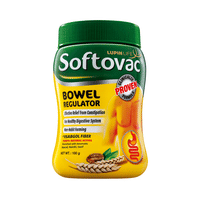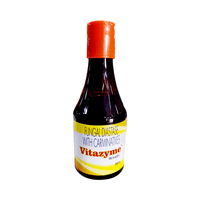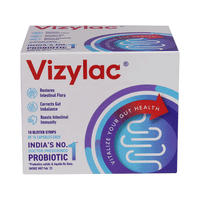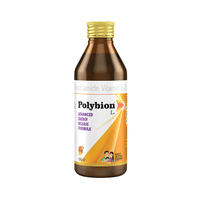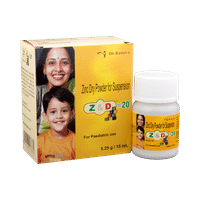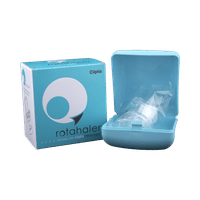Rs.216for 1 vial(s) (1 Injection each)
Ceftanem Injection க்கான உணவு இடைவினை
Ceftanem Injection க்கான மது இடைவினை
Ceftanem Injection க்கான கர்ப்பகாலம் இடைவினை
Ceftanem Injection க்கான பால் புகட்டுதல் இடைவினை
உணவு
மது
கர்ப்பகாலம்
பால் புகட்டுதல்
No interaction found/established
Consuming alcohol with Ceftanem 1000mg Injection does not usually cause any harmful side effects.
SAFE
Ceftanem 1000mg Injection is generally considered safe to use during pregnancy. Animal studies do not indicate harmful effects. However, there are limited human studies.
SAFE IF PRESCRIBED
Available human data suggest that the drug does not pass into breast milk in clinically significant amounts and is unlikely to harm the infant.
Avoid prolonged use of Ceftanem 1000mg Injection, since it may have possible effects such as rash and diarrhea.
Avoid prolonged use of Ceftanem 1000mg Injection, since it may have possible effects such as rash and diarrhea.
SAFE IF PRESCRIBED
Ceftanem 1000mg Injection க்கான உப்பு தகவல்
Ceftazidime(1000mg)
Ceftanem injection இன் பயன்கள்
{med_name} is used in the treatment of bacterial infections.
Ceftanem injection எப்படி வேலை செய்கிறது
Ceftanem 1000mg Injection is an antibiotic. It kills the bacteria by preventing them from forming the bacterial protective covering (cell wall) which is needed for them to survive.
Ceftanem injection இன் பொதுவான பக்க விளைவுகள்
Rash, Allergic reaction, Injection site reaction, Diarrhea
Ceftanem Injection க்கான மாற்றுகள்
170 மாற்றுகள்
170 மாற்றுகள்
Sorted By
 Rs. 180.59save 18% more per Injection
Rs. 180.59save 18% more per Injection Rs. 200.89save 9% more per Injection
Rs. 200.89save 9% more per Injection Rs. 108.40save 51% more per Injection
Rs. 108.40save 51% more per Injection Rs. 234.38pay 6% more per Injection
Rs. 234.38pay 6% more per Injection Rs. 229.69pay 4% more per Injection
Rs. 229.69pay 4% more per Injection
Ceftanem Injection க்கான நிபுணர் அறிவுரை
- Your doctor has prescribed Ceftazidime to cure your infection and improve your symptoms.
- Do not skip any doses and finish the full course of treatment even if you feel better. Stopping it early may make the infection harder to treat.
- Discontinue Ceftazidime and inform your doctor immediately if you get a rash, itchy skin, swelling of face and mouth, or have difficulty in breathing.
- Diarrhea may occur as a side effect but should stop when your course is complete. Inform your doctor if it does not stop or if you find blood in your stools.
- Your doctor has prescribed Ceftazidime to cure your infection and improve your symptoms.
- Do not skip any doses and finish the full course of treatment even if you feel better. Stopping it early may make the infection harder to treat.
- Take it with food to avoid an upset stomach.
- Diarrhea may occur as a side effect but should stop when your course is complete. Inform your doctor if it does not stop or if you find blood in your stools.
- Avoid consuming alcohol while taking Ceftazidime as it may cause increased side effects.
- Discontinue Ceftazidime and inform your doctor immediately if you get a rash, itchy skin, swelling of face and mouth, or have difficulty in breathing.
Ceftanem 1000mg Injection க்கான அடிக்கடி கேட்கப்படும் கேள்விகள்
Ceftazidime
Q. What organisms does Ceftanem 1000mg Injection cover?
Ceftanem 1000mg Injection is active against pseudomonas, anaerobes, and staphylococcus bacteria. It may not be effective against methicillin- resistant Staphylococcus aureus (MRSA).
Q. How is Ceftanem 1000mg Injection administered?
Ceftanem 1000mg Injection is administered under the supervision of a trained healthcare professional or a doctor and should not be self administered. The dose will depend on the condition you are being treated for and will be decided by your doctor. Follow your doctor’s instructions carefully to get maximum benefit from Ceftanem 1000mg Injection.
Q. Can the use of Ceftanem 1000mg Injection cause diarrhea?
Yes, the use of Ceftanem 1000mg Injection can cause diarrhea. Ceftanem 1000mg Injection is an antibiotic which kills the harmful bacteria. However, it also affects the helpful bacteria in your stomach or intestine and causes diarrhea. If diarrhea persists, talk to your doctor about it.















